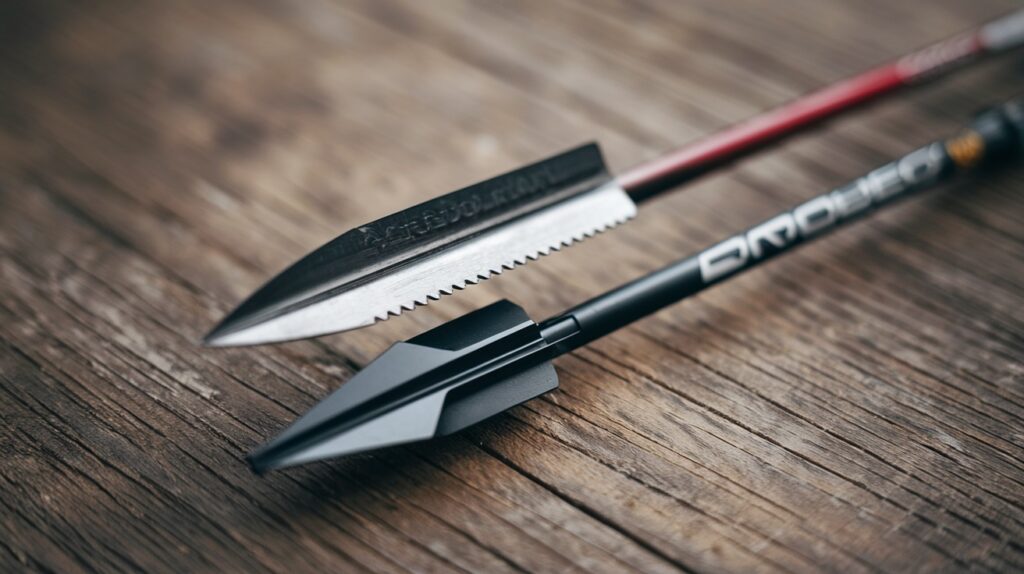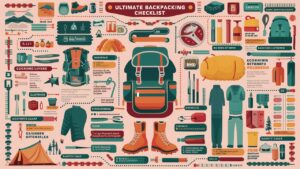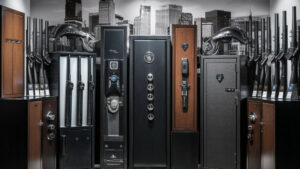Fixed blade broadheads offer durability and consistent performance, while mechanical broadheads provide larger wound channels and easier deployment. Each type has its advantages, depending on your hunting needs.
Choosing the right broadhead can significantly impact your hunting success. Fixed blade broadheads are known for their reliability and simplicity, making them ideal for those who prefer a no-fuss approach. They maintain their cutting edge and are less prone to failure upon impact.
On the other hand, mechanical broadheads expand upon contact, creating larger wound channels and promoting quicker kills. This feature can be advantageous for hunters targeting larger game. Understanding these differences helps you select the best broadhead for your specific hunting style and conditions. Make an informed choice to enhance your overall hunting experience.
Introduction To Broadhead Choices
Choosing the right broadhead is crucial for successful hunting. Broadheads play a key role in arrow performance and hunting effectiveness. Hunters often debate between two main types: fixed blade and mechanical. Each type has unique benefits and drawbacks.
The Role Of Broadheads In Hunting
Broadheads are essential for hunting with arrows. They determine how well an arrow penetrates and damages game. Here are some key points about their role:
- Accuracy: Broadheads affect arrow flight and precision.
- Penetration: The design influences how deeply an arrow penetrates.
- Damage: Broadheads create larger wounds for effective kills.
Choosing the right broadhead can make or break a hunt. Understanding the differences helps improve success rates.
Fixed Blade Vs. Mechanical: The Core Debate
The debate between fixed blade and mechanical broadheads is ongoing. Each type has loyal supporters.
| Feature | Fixed Blade | Mechanical |
|---|---|---|
| Design | Simple, sturdy blades | Blades expand upon impact |
| Durability | Highly durable | Less durable |
| Weight | Usually heavier | Lighter, variable weight |
| Flight | Stable and accurate | May require tuning |
| Wound Channel | Narrower | Wider upon expansion |
Consider these features carefully. Your choice depends on your hunting style and preferences.
Fixed Blade Broadheads
Fixed blade broadheads are a popular choice among hunters. They offer simplicity and reliability. These broadheads feature a fixed blade design, which enhances accuracy and penetration.
Design And Durability
Fixed blade broadheads have a robust and straightforward design. They are made from durable materials like:
- Steel
- Titanium
The blades remain in a fixed position during flight. This design leads to better aerodynamics. Most fixed blade broadheads can withstand tough conditions. They resist bending or breaking on impact.
Advantages In The Field
Fixed blade broadheads provide several advantages:
- Reliable Performance: They perform consistently in various situations.
- Better Penetration: Their design allows deeper penetration into targets.
- Easy to Sharpen: They can be easily sharpened for reuse.
- Effective for Large Game: Ideal for hunting large animals.
These advantages make them a favored choice for many hunters.
Considerations And Limitations
Despite their benefits, fixed blade broadheads have some limitations:
- Wind Resistance: They can be affected by wind more than mechanical broadheads.
- Noise: Some hunters find them noisier on release.
- Fixed Blade Size: Limited options for adjusting blade width.
Understanding these considerations helps hunters make informed choices.
Mechanical Broadheads
Mechanical broadheads have gained popularity among hunters. They are known for their innovative design and effectiveness. These broadheads deploy blades upon impact, increasing the cutting diameter for a larger wound. This leads to better blood trails and quicker recovery of game.
Mechanism And Functionality
Mechanical broadheads operate using a simple yet effective mechanism. They feature blades that remain closed during flight. Upon impact, the force of the shot opens the blades. This design allows for:
- Improved aerodynamics
- Reduced wind resistance
- Accurate flight paths
The blades typically fold back into the broadhead body. This ensures a smaller profile for better accuracy. Once the broadhead strikes the target, the blades expand, creating a wider cut.
Why Choose Mechanical?
Hunters often choose mechanical broadheads for several reasons:
- Wider cutting diameter: Larger wounds help with blood loss.
- Better flight accuracy: They fly like field points.
- Less noise: Quieter upon release compared to fixed blades.
- Easy to re-sharpen: Blades can be replaced or sharpened easily.
These features make mechanical broadheads an appealing choice for many archers.
Potential Drawbacks
Despite their advantages, mechanical broadheads have some drawbacks:
- Reliability: They may fail to deploy in some situations.
- Durability: Blades can bend or break on hard hits.
- Complexity: More moving parts can lead to malfunctions.
Hunters must weigh these factors before making a choice. Understanding both pros and cons is key to successful hunting.
Accuracy And Precision
Accuracy and precision are vital in archery. They determine the success of your hunt. Fixed blade broadheads and mechanical broadheads differ in how they achieve these goals.
Impact On Arrow Flight
Arrow flight is crucial for hitting your target. Fixed blade broadheads provide stability. Their design helps them fly straight. Here are some key points:
- Fixed Blade: Less affected by wind.
- Mechanical: May open during flight.
- Fixed Blade: Consistent performance in various conditions.
- Mechanical: Requires precise tuning.
Many archers prefer fixed blades for their reliability. Mechanical broadheads need careful setup. Any mistakes can lead to missed shots.
Target Penetration Comparisons
Penetration is crucial for effective hunting. It affects how deep an arrow goes. Below is a comparison:
| Type | PENETRATION DEPTH | WOUND CHANNEL |
|---|---|---|
| Fixed Blade | Deep and consistent | Narrow but effective |
| Mechanical | Varies based on opening | Wider cut, less depth |
Fixed blade broadheads often penetrate deeper. They create a narrower channel. Mechanical broadheads cause larger wounds but may not penetrate as deeply.
Choose based on your hunting needs. Both types have their strengths. Understanding these differences leads to better choices.
Hunting Game Size Impact
Choosing the right broadhead affects your hunting success. The size of the game determines which type works best. Fixed blade broadheads and mechanical broadheads each have unique features. Understanding these differences helps in making an informed choice.
Best Broadhead For Small Game
Small game includes animals like rabbits, squirrels, and birds. For these targets, precision is crucial. Here are some options:
- Fixed Blade Broadheads:
- Consistent flight path
- Durable design
- Easy to sharpen
- Mechanical Broadheads:
- Wider cutting diameter
- Less drag in flight
- Effective for quick kills
| Broadhead Type | Pros | Cons |
|---|---|---|
| Fixed Blade | Reliable, easy to maintain | More wind resistance |
| Mechanical | Great for larger cuts | May fail to open |
Choosing For Large Game Hunting
Large game includes deer, elk, and bear. These animals require a more powerful broadhead. Here’s what to consider:
- Fixed Blade Broadheads:
- Strong penetration
- Reliable performance
- Ideal for tough hide
- Mechanical Broadheads:
- Wider cut for larger wounds
- Greater blood trails
- Less resistance during flight
Selecting between fixed and mechanical broadheads depends on game size. Each type has unique benefits for different hunting scenarios. For small game, precision is key. For large game, power and wound size matter.
Reliability In Various Conditions
Choosing between fixed blade broadheads and mechanical broadheads hinges on their reliability in different conditions. Understanding how each performs in various environments is vital for a successful hunt.
Weather And Environmental Factors
Weather plays a significant role in broadhead performance. Rain, snow, and wind can affect your shot.
- Fixed Blade Broadheads:
- Work well in wet conditions.
- Maintain their sharpness longer.
- Less affected by wind.
- Mechanical Broadheads:
- Can malfunction in heavy rain.
- May require careful handling.
- Wind can affect their flight path.
| Condition | Fixed Blade | Mechanical |
|---|---|---|
| Rain | Reliable | Risk of malfunction |
| Wind | Stable | Unpredictable |
| Snow | Effective | Possible jamming |
Maintenance And Longevity
Regular maintenance ensures optimal performance. The longevity of each type varies.
- Fixed Blade Broadheads:
- Easy to sharpen.
- Durable materials extend lifespan.
- Less prone to damage.
- Mechanical Broadheads:
- More parts mean more maintenance.
- Replacement blades are necessary.
- Can wear out quickly with heavy use.
Choose wisely based on your hunting conditions. Reliability matters in the field.
Hunter Experiences And Testimonials
Hunters often share their experiences with broadheads. Their stories provide insight into the effectiveness of fixed blade and mechanical broadheads. Each type has its fans and critics. Let’s explore first-hand accounts and notable success stories.
First-hand Accounts
Many hunters have distinct preferences for broadheads. Here are some testimonials:
- John, 34: “I trust fixed blades. They fly straight and penetrate deep.”
- Sarah, 28: “Mechanical broadheads expand on impact. They create bigger wounds.”
- Mike, 45: “I had a poor experience with a mechanical broadhead. It didn’t open.”
Each hunter’s experience shapes their choice. Some prefer reliability, while others seek maximum damage.
Success Stories And Failures
Success stories shine a light on broadhead performance. Here are some examples:
| Broadhead Type | Success Story | Failure Story |
|---|---|---|
| Fixed Blade | Bob shot a deer at 40 yards. The arrow penetrated through. | Emily missed her target. Wind drifted her arrow off course. |
| Mechanical | David hit a buck. The broadhead expanded perfectly, ensuring a quick kill. | Laura’s arrow didn’t deploy. She lost her shot on a large elk. |
These stories highlight the importance of choosing the right broadhead. Personal experiences help others make informed decisions.
- Consider your hunting style.
- Test different broadheads.
- Learn from others’ experiences.
Making The Right Choice For Your Hunt
Choosing between a fixed blade broadhead and a mechanical broadhead is crucial. Each option has unique benefits. Understanding these can enhance your hunting success.
Factors To Consider
Several factors influence your choice of broadhead:
- Type of Game: Larger animals may require stronger broadheads.
- Hunting Environment: Dense brush may favor fixed blades.
- Bow Type: Match your broadhead with your bow’s setup.
- Flight Performance: Check for accuracy and stability.
Balancing Cost And Quality
Cost and quality play a big role in your choice.
| Type | Price Range | Quality |
|---|---|---|
| Fixed Blade | $30 – $70 | High durability |
| Mechanical | $40 – $100 | Variable durability |
Investing in quality broadheads pays off in performance. Weigh your budget against the features you need.
Personal Preference And Style
Your hunting style impacts your broadhead choice. Consider these points:
- Experience Level: Beginners may prefer mechanical for ease.
- Hunting Technique: Traditionalists often favor fixed blades.
- Comfort: Choose what feels right in your hands.
Your broadhead should match your skills and comfort. Test both types to find what works for you.
Legal Considerations And Regulations
Understanding the legal landscape for fixed blade broadheads and mechanical broadheads is crucial. Each type of broadhead has its own set of rules. Hunters must be aware of these rules to ensure responsible hunting.
State And Regional Restrictions
Different states have specific regulations for broadhead types. These rules can vary widely based on local laws. Below is a table showing examples of state restrictions:
| State | Fixed Blade Allowed | Mechanical Allowed |
|---|---|---|
| California | Yes | Yes |
| Texas | Yes | Yes |
| New York | Yes | No |
| Florida | No | Yes |
Always check local regulations before hunting. Some regions may have specific limits on size or design. Ignoring these rules can result in fines or penalties.
Ethical Hunting Practices
Ethical hunting practices are essential for conservation. Hunters must use equipment that promotes humane kills. Both fixed blade and mechanical broadheads can be ethical, depending on use.
- Choose the right broadhead: Select one suitable for your target.
- Practice shooting: Ensure accuracy before the hunt.
- Follow regulations: Abide by local laws and guidelines.
- Minimize suffering: Aim for quick and humane kills.
Ethics extend beyond legality. Responsible hunters respect wildlife and the environment. This mindset helps preserve hunting for future generations. Always aim for sustainable hunting practices.

Conclusion: The Verdict In The Field
Choosing between fixed blade broadheads and mechanical broadheads is crucial for hunters. Each type has unique strengths and weaknesses. Understanding these can enhance your hunting experience.
Summarizing The Showdown
Here’s a quick comparison of both broadhead types:
| Feature | Fixed Blade Broadheads | Mechanical Broadheads |
|---|---|---|
| Durability | Highly durable, withstands tough conditions | Less durable, may fail on impact |
| Accuracy | Consistent flight path | May require tuning for best results |
| Wound Channel | Smaller wound channel | Larger wound channel, causes more damage |
| Weight Options | Limited weight options | Variety of weight options available |
- Fixed blade broadheads excel in durability.
- Mechanical broadheads offer a larger wound channel.
- Mechanical broadheads can provide better penetration.
Parting Thoughts For The Avid Hunter
Every hunter has different needs. Choose what fits your style best.
- Assess your hunting environment.
- Consider the type of game you pursue.
- Think about your personal preferences.
Test both types in the field. This will help you understand their performance. Your choice can impact your success.
Frequently Asked Questions
Fixed Blade Broadheads: What Are They?
Fixed blade broadheads are arrow tips with blades that do not move upon impact. They are typically known for their durability and accuracy. These broadheads can deliver deep penetration and create larger wound channels. Archers often prefer them for their reliability in various hunting conditions.
What Are Mechanical Broadheads?
Mechanical broadheads feature blades that expand upon impact. This design allows for smaller arrow profiles during flight, improving aerodynamics. When they hit the target, the blades open up, creating larger wounds. Many hunters favor mechanical broadheads for their impressive cutting diameter and effectiveness on game.
Which Is Better: Fixed Or Mechanical?
The choice between fixed and mechanical broadheads depends on personal preference. Fixed blades offer consistent performance and durability, while mechanicals provide larger cutting diameters. Consider factors like hunting conditions and game size. Testing both types can help you determine which suits your needs best.
Do Fixed Blades Fly Straight?
Yes, fixed blade broadheads generally fly straighter than mechanicals. Their design reduces the chances of erratic flight patterns. However, proper tuning of your bow and arrows is essential for optimal performance. Always practice with the broadheads you intend to use for hunting.
Conclusion
Choosing between fixed blade broadheads and mechanical options ultimately depends on your hunting style and preferences. Each type has distinct advantages. Fixed blades offer reliability, while mechanicals provide increased accuracy. Understanding their differences can enhance your hunting experience. Make an informed choice to maximize your success in the field.








